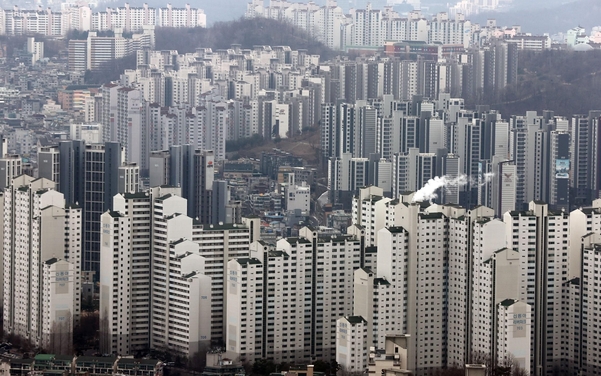Input 2021.01.23 06:00 | Revision 2021.01.23 08:14

However, it was found that the volume of transactions in Seoul and Sejong declined significantly. Last month, Seoul apartment transaction volume was 14,060, down 41.5% from last July (24,038). Sejong, which recorded the nation’s highest rate of increase in house prices last year, also had a mere 1615 transactions last month, a sharp decline from July (8988).
However, in the provinces, the volume of transactions in small cities excluding metropolitan cities increased noticeably. In Gyeongsang Province, where some areas were designated as regulated areas last month, the increase in transaction volume was remarkable. In Gyeongnam, 8973 transactions were made in July, but 14,391 transactions were reported last month. In Gyeongbuk, the volume of apartment transactions doubled from 5,350 in July to 12,297 last month.
The volume of transactions in Jeju Island also increased. Jeju Island had only 499 transactions in July last year, but increased to 1055 last month. Chungbuk recorded 4429 cases last month, a 58% increase from July (2793 cases), and Chungnam province recorded 9698 cases last month, an increase of 30.4% from July (6748 cases). Jeollabuk-do increased from 4634 cases in July to 6851 cases last month.
This increase in transaction volume was influenced by corporations’ aggressive efforts to sell local homes to reduce tax burden. Last year, corporations hurriedly sold their homes ahead of tax burdens. According to the Korea Real Estate Agency, the number of apartments sold by corporations nationwide last month was 46,610, an increase of 52.8% from the previous month (29,859).
The corporation’s sold apartments were concentrated in Seoul and Sejong Bodan provinces. The number of apartments sold by corporations in Seoul decreased from 3453 in July to 3198 last month. Sejong also saw a significant decrease in corporate sales from 6928 to 752 over the same period. Even if there was a tax burden, it was not sold for sale.
On the other hand, the number of apartments sold by corporations in Gyeongnam was only 2296 in July, but increased significantly to 3923 last month. In Gyeongsangbuk-do, the number of corporations has more than tripled from 995 in July to 3173 in last month. Jeju also had 107 cases in July, but surged to 388 cases last month.
Real estate experts analyzed that the apartment purchase tax, which started in Seoul and the metropolitan area at the beginning of last year, has spread to small towns beyond local metropolitan cities, and that the volume of housing transactions has increased mainly in the provinces as corporate investors put out their products.
Jihae Yoon, senior researcher at Real Estate 114, said, “It seems that the overall upward trend is in the process of spreading to unregulated areas that have not yet risen.” “Since a lot of it has been removed, real demand and investment demand are shifted to the provinces.”
Shim Gyo-eon, a professor at Konkuk University’s Department of Real Estate, said, “After the passage of the 2nd Lease Act, the sentiment of buying a house has been triggered by consumers who have been in trouble even now. “You can see it as a phase where the cycle of cycle is completed once.”
He added, “As the corporation is also in a’panic state’ to reduce the quantity at any time due to the increase in the holding tax burden from June, it seems that the sell-off trend has appeared mainly in areas where the transaction volume is concentrated.”
